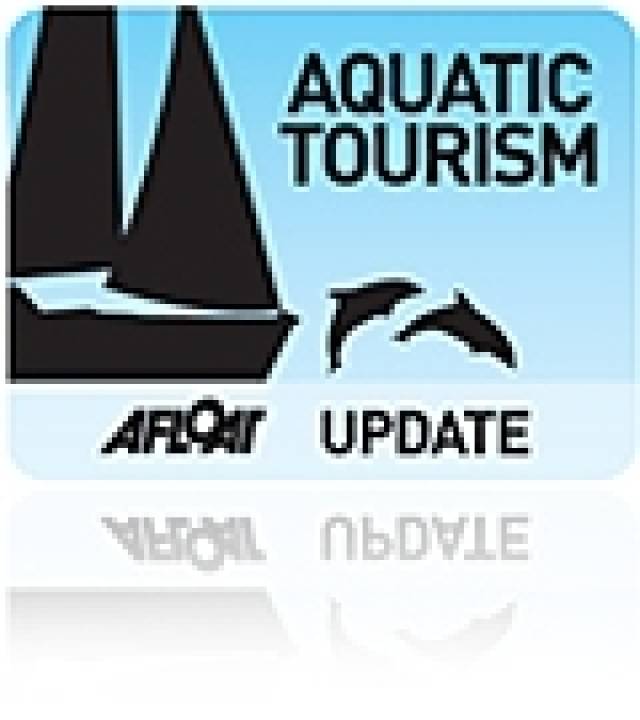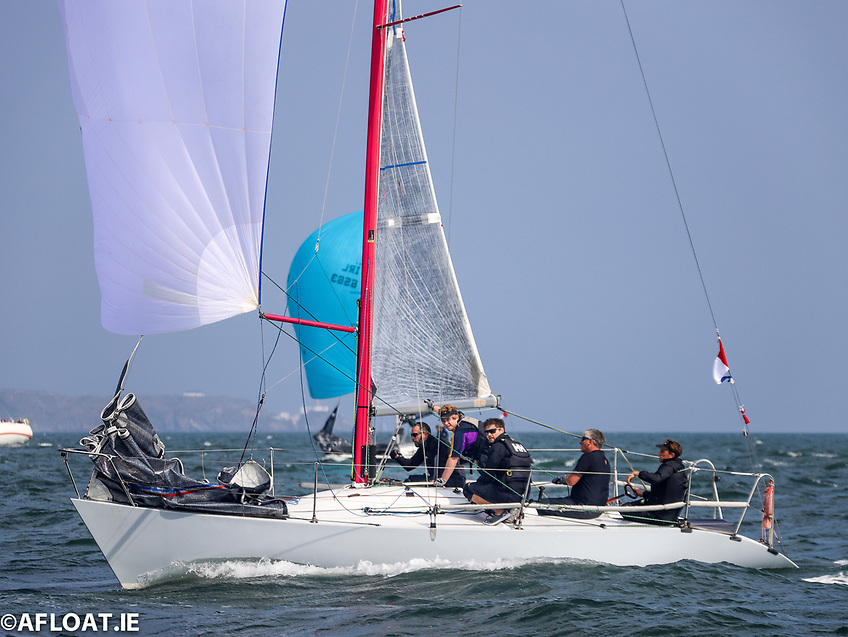#glenans – Leo Varadkar TD, Minister for Transport, Tourism and Sport took up the offer of a sailing lesson in Dun Laoghaire harbour last Sunday after performing the official launch of the 2013 Les Glenans Ireland brochure at the National Yacht Club.
Minister Varadkar congratulated Les Glenans for it's significant contribution to Irish tourism. Each year the organisation welcomes several hundred trainees to it's bases at Baltimore in county Cork and on Collanmore Island in Clew Bay, county Mayo.
After meeting many of the Les Glenans volunteers, Minister Varadkar joined Les Glenans cruising instructor Seamus Fitzgerald and a number of trainees on board a 1720, lent by the Royal Irish Yacht Club.
Taking the helm as the boat slipped it's lines, the Minister enjoyed his first experience of small boat sailing in a moderate breeze and warm sunshine.
For information on Les Glenans courses and bookings in Ireland see The Glenans website or call 028 20 630






























































